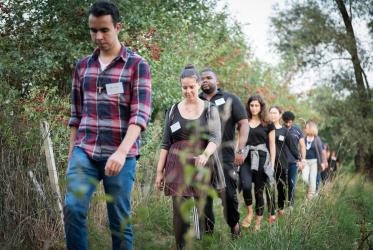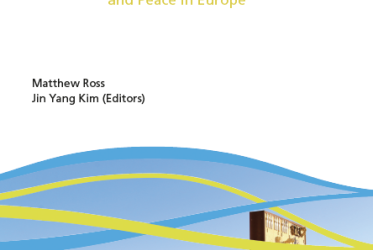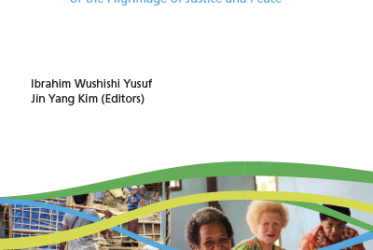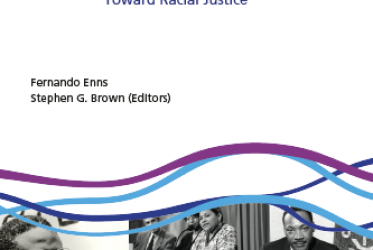“The number of young people struggling with depression strongly increased during the pandemic,” she said. “Unfortunately, our public health systems are not well equipped to offer adequate and affordable mental health care.”
Her remarks were delivered during an online consultation on 6 May, organized by the World Council of Churches (WCC) and the Conference of European Churches to focus on the Pilgrimage of Justice and Peace in the context of the COVID-19 pandemic.
“There are some references in the media about us being the ‘new lost generation,’ the generation that is missing all the fun and good things that young people usually enjoy in this phase of their lives,” she said. “But young people don’t want to be called as ‘lost,’ because if you call them ‘lost,’ you are denying them the opportunity not to be lost and to think about their hopes, dreams, and worries.”
A member of the executive committee of the Ecumenical Youth Council in Europe, Sonnleithner works with youth in the Lutheran Church in Austria and has been participating and shaping the work with young people in the United Methodist Church on a local and global level for several years.
Heather Roy, secretary general at Eurodiaconia, added that COVID-19 has seen young people as the new group of volunteers for diakonia work. “The question is how to keep them interested in diaconal work in post pandemic era”, she said.
Participants also talked about COVID-19’s disproportionate impact on minority communities and people with disabilities. They also discussed ways to share accurate information about vaccines.
“This consultation has been a timely opportunity to consider the reality of COVID-19 in Europe,” said WCC deputy general secretary Prof. Dr Isabel Apawo Phiri. “Whilst global attention is quite rightly focused on the terrible situations in India and Brazil, COVID-19 has so far resulted in over 678,000 deaths and 30 million cases across the European Union and European Economic Area alone.”
As media attention focuses on economic consequences of the pandemic and the possibility of travel for summer holidays, the consultation focused on the impact on some of Europe’s most marginalised and vulnerable communities. “The consequences for individual human beings, irrespective of background or status, must be uppermost in the concerns of the church,” she said. “The World Council of Churches actively supported World Vaccination Week. Whilst some European countries are making good progress, COVID-19 cannot be defeated until vaccinations are available to all people in every nation.”
A panel discussion was moderated by Dr Jørgen Skov Sørensen, general secretary of the Conference of European Churches, who said: "The COVID-19 health crisis has revealed injustice, economic inequality and marginalization across the globe. The most vulnerable are facing the effects of the pandemic acutely. I am confident that European churches in a variety of contexts are not only are able to witness this reality but are able to address this issue effectively, bringing forth the message of hope and justice."
This was the second in a series of regional consultations on the Pilgrimage of Justice and Peace in the context of COVID-19. The first one was held on 27 April, focusing on the African region.
Watch the recording of the consultation
In Africa, “resilience of God’s people amidst adversity continues to amaze us” - WCC news release 27 April 2021






